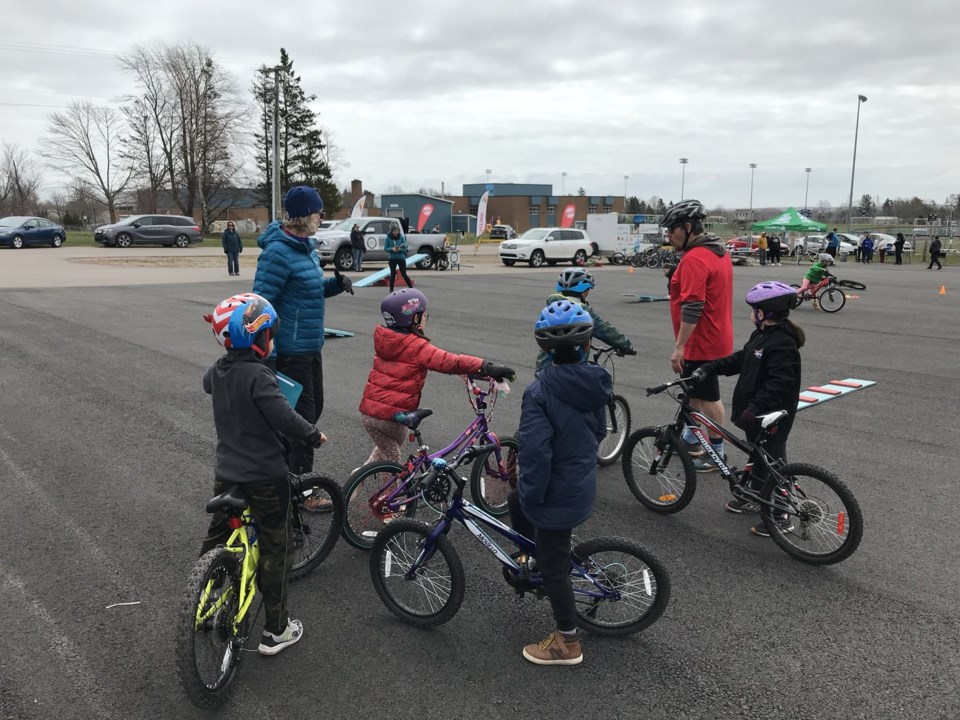CHARLOTTETOWN — Anna Keenan likes to keep up with public transit trends.
The City of Charlottetown's sustainable transportation officer said she learned on Instagram of a new way students are travelling to school: a bike bus.
Instead of getting picked up by a yellow school bus, students in some cities across the world — including in the United States, Australia, Brazil, Spain, Israel and India — wait for a convoy of children on bikes, led by volunteers or parents, to pass by their home.
Keenan said she liked the idea so much she proposed at a city committee meeting that students from two elementary schools in Charlottetown start bike buses next spring.
"I'm regularly following trends across the country and internationally on what's happening on both public transit and active transportation," she said in an interview.
She learned about bike buses on the Instagram account of Sam Balto, a physical education teacher at Alameda Elementary School in Portland, Ore., who is the founder of "Bike Bus World," a movement encouraging cities everywhere to start their own bike buses.
Keenan said his Instagram page "basically has instructions on how to start a bike bus in your community, and his Instagram channel is full of really heartwarming videos of kids taking this group ride to school."
Starting in the spring, two Charlottetown schools will use bike buses once a week to bring students to school. "Ultimately, the program will be led by school communities themselves," Keenan said. The two schools haven't yet been chosen.
Charlottetown has included in its next draft budget $40,000 in municipal and provincial funding to buy things such as cargo bikes that can carry a first aid kit, or even a child, should a bicycle break down, she said. The city wants to provide basic bike mechanic kits, high-visibility bright yellow jackets, safety gear and helmets, she added.
In an interview on Thursday, Balto said it's wonderful that the bike bus idea he said he came up with in spring 2022 has spread to cities around the world.
"As a physical education teacher, I was looking for ways to create more opportunity for physical activity for my students, and walking and biking to school is a great way to build physical movements before the school day, which sets them up to do better academically and to focus and help build stronger social connections," he said.
Schools should pick cycling routes with low vehicle traffic, and volunteers leading the bike buses should ensure all students move together, he said. It's also important to be consistent — the bike bus should go ahead regularly, once a week or once a month — so that people get used to it and make it part of their schedules, he added.
Cycling PEI said it has offered its members as volunteers to make sure students get to and from school.
"There could be a lot of people in our Cycling PEI community already whose kids go to elementary schools, and who might be interested in being ride leaders," said Jordan Bober, executive director of the group.
The bike bus program could raise awareness of the need for more bike lanes, he said.
"It just illustrates the extent to which the space available for kids to safely go out on their own — walk in their neighbourhood, bicycle — has really shrunk a lot over the years, and that's a really sad thing," Bober said.
Travis Saunders, a professor in the University of Prince Edward Island's department of applied human sciences, said he is "very happy" to support the program. His daughter, who is in kindergarten, bikes to school, which is about a kilometre from home, Saunders said. She also biked to her daycare, about three kilometres away.
"Kids who are physically active tend to feel better, emotionally, mentally," he said. "They learn better in school. They have less behavioural challenges in school."
This report by The Canadian Press was first published Jan. 3, 2025.
— By Hina Alam in Fredericton.
The Canadian Press
